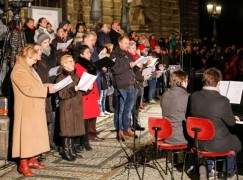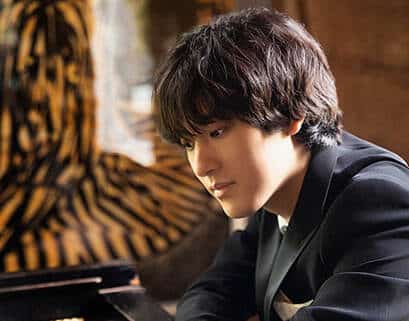Singers may apply up to 28 (female) or 30 (male)
mainEvidence of sexual discrimination at the Semper Oper, Dresden:
Opera singers Junges Ensemble/
Soprano,Mezzosoprano,Tenor,Baritone,Bass
for the Dresden State Opera (Semperoper), seasons 2021/22 and 2022/23.
Applications will be accepted from opera singers of all nationalities who are at the beginning of their
professional careers. There is an age restriction of 28 years for female singers and 30 years for male
singers, and all applicants must have a basic working knowledge of the German language.
The programme membership lasts two years. All members of the Junges Ensemble will receive a
monthly allowance which is similar in amount to a basic stage contract.







Norman this is really scraping the barrel. Do you want to have male singers? Does it really need to be pointed out that their voices develop later because of biological differences? What’s the point of being a “professional” critic if you come out with points on the level of the most ignorant and stupid twitter user imaginable? Aren’t you ashamed to be poking at the meagre provision that there is for singers? You’re punching down – shame on you.
Much as I agree with you, NL’s job is that of a polemicist, to provoke debate. The enlightenment lies, invariably, in the comments thread rather than the article.
If those in the classical music industry were truly interested in “equality and diversity” there would be no discrimination predicated on age for either CONTESTS or ROLES!
Maybe they’re just interested in the most suitable person for the job.
Some training schemes still have differing age limits because their programs frequently had a not unsubstantial percentage of applicants coming from countries with compulsory military service in effect.
Really no big deal. No discrimination there !! Sopranos are just louder than tenors. This is just an acoustical balanced decision.
That IS really nice Norman but the
Fürst is still won too many.
This phenomenon is, regrettably, nothing new and reflects more the vagaries of both the vocal education system and the employment market. That is not to suggest that it is correct or realistic. Age limits are arbitrary and ultimately self-defeating. Vocal maturity comes only with time. One would like to think that the vocal cream still rises to the top but such restrictions increasingly prevent real talent from emerging in a natural progression and a positive, nurturing and supported environment. Due to such artificial age restrictions, among other adverse factors, much talent is prevented from access to the funding required to advance further. Voices are regarded as a disposable consumer product rather than vocal longevity, individual quality, and tailored development being given the greater emphasis. Much exceptional vocal talent is lost, even destroyed, before it has seen the light of day. A lamentable situation with far-reaching consequences.
males are allowed to sing well into their their 80s, just ask Placido, so what’s a 2-year wait compared to a 2-decade extension of a man’s career
Thank you for pointing this out but this isn’t news at all. Every singer would tell you this is the norm. I personally think it’s dumb. No, men’s voices don’t “develop later” (as someone in the replies said) and certainly not exactly two f*cking years later – and if it were REALLY about development, shouldn’t they distinguish between dramatic and lyric voices, rather than men and women?
Ema, your objections to the biological truth of voice changes with puberty aside, it is self-evident that there is a need for a certain number of male singers and a certain number of female singers in opera. They are not in competition with each other. If the higher age limit were simply a reflection of the smaller pool of talent for male singers and not related to, yaknow, men’s voices changing clefs in puberty, that would still be reasonable. Would you also expect orchestras to take participants purely based on talent, refusing to discriminate by what instrument they play?
I hope you are not attempting to say that biological changes to voice in puberty only happen for male voices and not female. Despite the fact that male voices developing during puberty are often more auditorially apparent, a very similar change happens for female voices too, at similar ages and for similar durations. There is no physical deficit that only afflicts makes justifying those two years. Yes, male and female voices are different but the numbers taken from either group in most YAPs change every year, not always equally. Both of your main arguments don’t really work here.
I think a lot of good and well established singing teachers would disagree with you. Certainly mine would have done – and without having to resort to swearing on a public page in anger!!!
Everything – absolutely everything that happens in music – turns into a dispute with combative comments and attitudes. The employer can do what he/she likes and if that means auditioning on Mars then so be it.
Put your own money where your gobs currently are before telling others what they can do with theirs.
Sounds like all the competitions, fewer than today, that were around when I was a music student setting out into he profession with those age limits. They were not looking for finished singers as they all seem to be today.
It would be really discrimination if the female singers are paid less than male, which is the case in most large corporations.
of course, this is not ‘sexual discrimination’, it’s AGEISM!